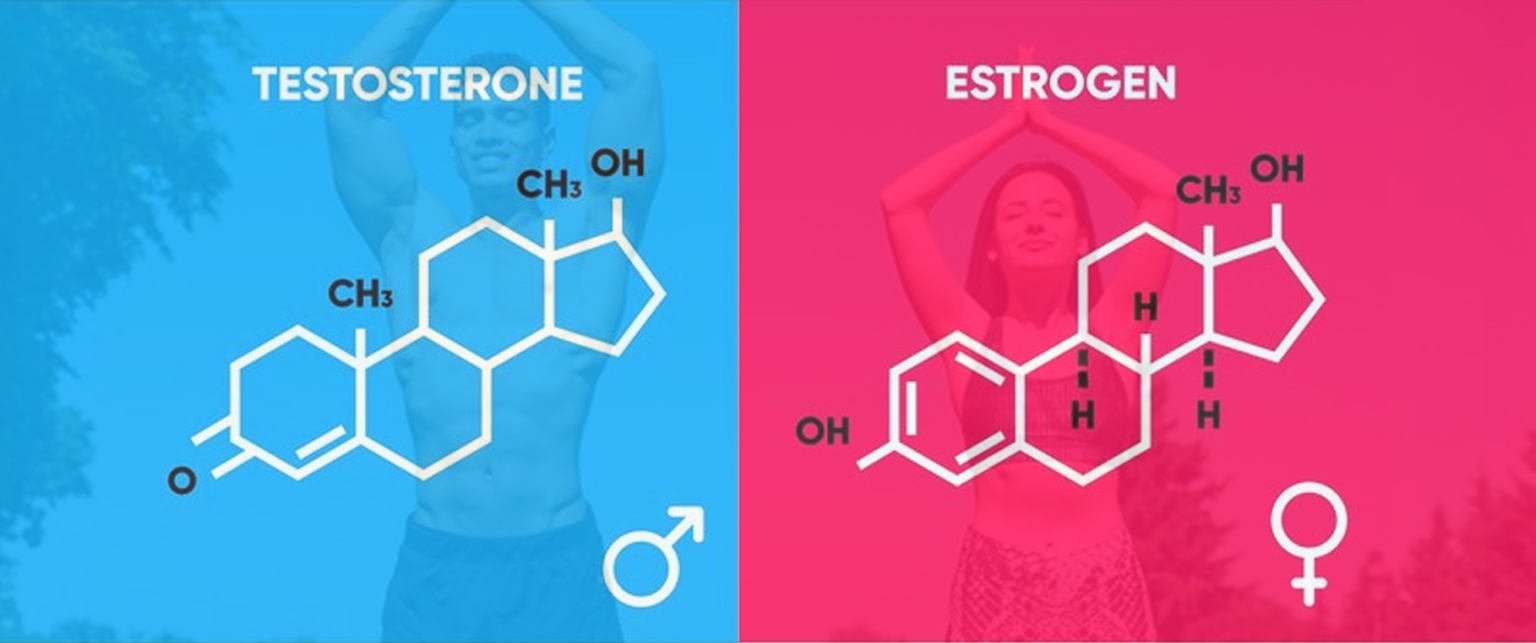Blog > Testosterone – why is it so important
Testosterone - why is it so important

Testosterone hormone is one of the most important hormones in our body, it is primarily a male hormone but also can be found in lower amounts in women. It is often associated with male characteristics such as muscle mass, facial hair, and a deep voice. On the contrary, the function of testosterone is far more than just visible traits. Among other things, it is of utmost importance in the physical, emotional, and cognitive functions.
What Is Testosterone?
Testosterone is a hormone which is mainly produced in the testicles in men and the ovaries in women. The adrenal glands are also able to produce a small amount of this hormone. Testosterone belongs to a group of hormones known as androgens which are responsible for the male qualities. In men, testosterone levels may reach the highest peaks during the period of adolescence and early adulthood. The growth in years of men causes the levels of the substance to be decreased gradually.
Testosterone is key for men’s growth and sexual health, however, apart from that, it regulates many other body functions including bone mass regulation, fat distribution, red blood cell production, and mood stabilization.
The Importance of Testosterone in Men
1. Sexual Health and Reproductive Functions
Testosterone is an important factor for sexual health. This hormone is made for the male reproductive organ and sperm formation. Optimal testosterone level is very important for men in order to have normal libido, maintain proper erectile function, and produce sperm. Low testosterone may lead to sexual dysfunction, decreased libido, and subfertility.
2. Muscle Mass and Strength
Testosterone’s anabolic properties are what it is most popularly known for. It has the ability to promote the growth of new muscle cells and the retention of already existing muscle mass. This is due to the increased protein synthesis (the building of new proteins) in muscle cells, which is why men are often said to have high testosterone levels and, therefore, better athletic performance and physical fitness. The condition of low testosterone in men can result in reduced muscle mass, weakness, and longer recovery time after sports activities.
3. Bone Density
The key function of testosterone is regulating the density of our bones. It triggers the delivery of bone tissue and guarantees the strong and healthy state of the bones. Men who have a lower testosterone level have a greater chance of getting osteoporosis, a disease that makes the bones fragile and more susceptible to fractures.
4. Fat Distribution
Testosterone also affects the distribution of fat in the body. Testosterone’s normal course is to distribute body fat evenly, thus preventing the accumulation of an excess of fat, most notably in the abdomen region. A shortage of testosterone may be responsible for excessive fat deposition in the abdominal region which could lead to metabolic disorders, such as diabetes and cardiovascular diseases, being the risk factors.
5. Mood and Cognitive Function
Beyond its physical effects, testosterone is equally related to mood and cognitive function. Normality in testosterone level is linked to increased focus, enhanced emotional well-being, and greater mental clarity. Men low in testosterone usually talk of depression, anxiety, irritability, concentration problems, and memory loss. On the contrary, having an appropriate testosterone level can be beneficial in regulating emotions and improving cognitive ability.
The Importance of Testosterone in Women
Testosterone, which is primarily associated with male sexual characteristics, is still produced by the female organ to a certain extent and is necessary for optimal health. The ovaries and adrenal glands are responsible for the production of testosterone in women. Although in smaller quantities than men, it still has a lot of importance, including:
- Maintaining libido: Testosterone is a necessary hormone in women for sexual attraction. Low levels may cause problems and lead to low libido.
- Supporting bone health: As with men, testosterone assists in preserving bone density not only in men but also in women.
- Muscle strength: Testosterone brings benefits to women in regard to the development of muscle and physical strength.
- Energy levels and mood: Balanced testosterone levels facilitate women’s effective energy and mood management.
Signs of Low Testosterone
Low testosterone has been associated with a variety of symptoms in men. The recognition of these signs can help people to find a medical consultation and consider the possibility of treatment. Often, the symptoms that point out testosterone deficiency are:
- Reduced sex drive and sexual dysfunction
- Decreased muscle mass and strength
- Increased body fat, particularly in the abdominal region
- Fatigue and low energy levels
- Mood changes, such as irritability, anxiety, and depression
- Cognitive decline, including difficulties with concentration and memory
- Weakened bones and increased risk of fractures (osteoporosis)
Causes of Low Testosterone
Different factors can result in low testosterone levels such as:
- Aging: With age men lose the ability to produce testosterone in their bodies. From the age of 30, this level usually declines by around 1% per year.
- Chronic illnesses: Diseases like obesity, diabetes, and kidney cancer can become a reason for low testosterone levels.
- Injury or infection: Injuries of the testicles and infections on the glands can be the causes of lower testosterone.
- Medications: Some pharmaceutical drugs, like opioids or steroids, might have an impact on testosterone levels.
- Stress and lifestyle factors: Chronic stress, poor diet, and lack of physical activity are all contributors to a decrease in testosterone.
Treatment Options for Low Testosterone
For people who have low testosterone symptoms, there are different ways of treating them to help maintain the hormone levels. One of the most common methods of testosterone replacement therapy (TRT) is available in several forms, such as:
- Injections: Directly delivered to the muscle to enhance the level of testosterone.
- Topical gels or creams: Applied onto the skin and then transferred to the bloodstream.
- Patches: Applying on the skin, giving a controlled amount of testosterone.
- Pellets: Implanted under the skin to allow a slow dose of testosterone to be given.
Recent Post
- Penile Implant Surgery: A Permanent Solution to Erectile Dysfunction from the expert Andrologist in Bangalore
- Testosterone – why is it so important
- Bengaluru’s Leading Expert in Andrology (Male Fertility and Sexual Health) and Prosthetic Urology – Dr Pramod Krishnappa
- Varicocele – The Hidden Cause of Male Infertility
- No Sperm and Its Link to Genetic Factors: An Exploratory Guide
Related Post
Penile Implant Surgery: A Permanent Solution to Erectile Dysfunction from the expert Andrologist in Bangalore
Penile Implant Surgery: A Permanent Solution to Erectile Dysfunction from the expert Andrologist in Bangalore Living with erectile dysfunction (ED) is not only a physical
Testosterone – why is it so important
Testosterone – why is it so important Testosterone hormone is one of the most important hormones in our body, it is primarily a male hormone
Bengaluru’s Leading Expert in Andrology (Male Fertility and Sexual Health) and Prosthetic Urology – Dr Pramod Krishnappa
Bengaluru’s Leading Expert in Andrology (Male Fertility and Sexual Health) and Prosthetic Urology – Dr Pramod Krishnappa Overview Dr. Pramod Krishnappa is an exceptional Andrology
Varicocele – The Hidden Cause of Male Infertility
Varicocele_ The Hidden Cause of Male Infertility Infertility in men is a problem for millions of couples around the world, and one of the common
No Sperm and Its Link to Genetic Factors: An Exploratory Guide
No Sperm and Its Link to Genetic Factors: An Exploratory Guide Azoospermia, a leading cause of male infertility, occurs when a man’s ejaculate (semen) does
Penile Implant For Erectile Dysfunction: Preparation, During & After Surgery
Penile Implant For Erectile Dysfunction: Preparation, During & After Surgery A penile implant, also called a penile prosthesis, is a treatment method used to treat
Author: Dr. Pramod Krishnappa
